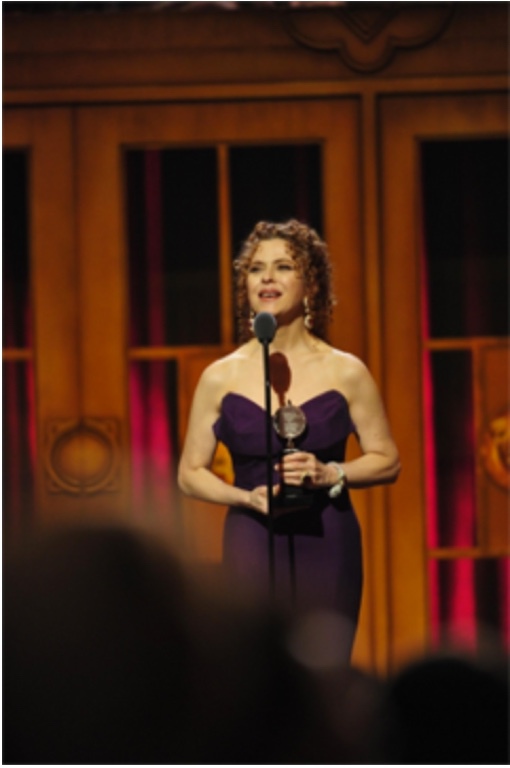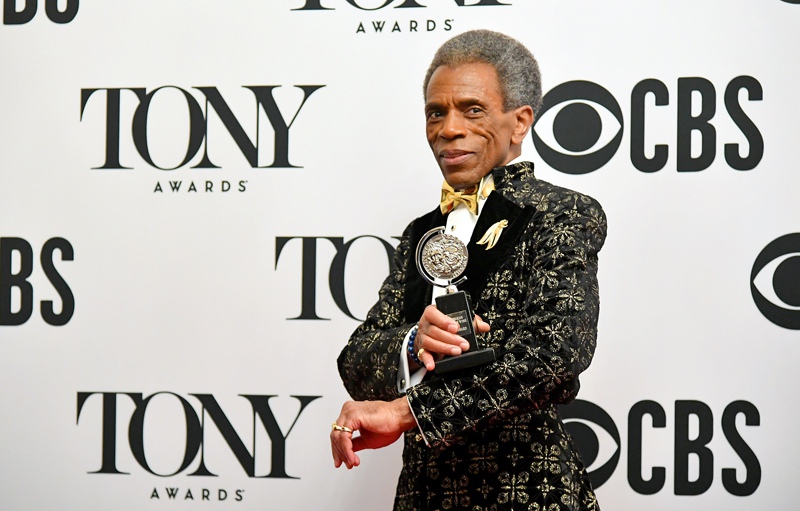Rules & Regulations
The rules and regulations that govern the American Theatre Wing's Tony Awards® are established by the Tony Awards Administration Committee, which is comprised of representatives appointed by the American Theatre Wing and The Broadway League, the two organizations that jointly administer the Tony Awards. The committee also includes representatives of Actors' Equity Association, the Dramatists Guild, United Scenic Artists, and SDC, the Stage Directors and Choreographers Society.
THE AWARD CATEGORIES
Though they have represented the pinnacle of theatrical excellence since their inception, the Tony Awards have evolved over the years. In particular, the number of categories and their designations have changed. For example, although the awards were established in 1947, there was no Tony for Best Play until the following year when Mister Roberts by Thomas Heggen and Joshua Logan was honored. Similarly, the first Best Musical award had to wait two years to make its debut. Kiss Me, Kate was the first musical to receive that award, in 1949.
There are currently 26 competitive categories of Tony Awards:
Best Play
Best Musical
Best Book of a Musical
Best Original Score (Music and/or Lyrics) Written for the Theatre
Best Revival of a Play
Best Revival of a Musical
Best Performance by an Actor in a Leading Role in a Play
Best Performance by an Actress in a Leading Role in a Play
Best Performance by an Actor in a Leading Role in a Musical
Best Performance by an Actress in a Leading Role in a Musical
Best Performance by an Actor in a Featured Role in a Play
Best Performance by an Actress in a Featured Role in a Play
Best Performance by an Actor in a Featured Role in a Musical
Best Performance by an Actress in a Featured Role in a Musical
Best Scenic Design of a Play
Best Scenic Design of a Musical
Best Costume Design of a Play
Best Costume Design of a Musical
Best Lighting Design of a Play
Best Lighting Design of a Musical
Best Sound Design of a Play
Best Sound Design of a Musical
Best Direction of a Play
Best Direction of a Musical
Best Choreography
Best Orchestrations
SPECIAL HONORS & AWARDS
In addition to competitive awards, the Tony Awards Administration Committee may bestow several varieties of special honors on deserving individuals or institutions.
Regional Theatre Tony Award
Each year since 1976, the Tonys have recognized the achievements of resident theatre companies across the U. S. This award goes to a not-for-profit producing organization in or outside of New York City, based on the recommendation of the American Theatre Critics Association.
Special Tony Award
This award recognizes extraordinary contribution to the theatre.
Special Tony Award for Lifetime Achievement in the Theatre
An award to honor an individual for the body of his or her work.
The Isabelle Stevenson Tony Award
This special honor is presented to a member of the theatre community who has made a substantial contribution of volunteered time and effort on behalf of one or more humanitarian, social service or charitable organizations.
Tony Honors for Excellence in the Theatre
These honors recognize the achievements of individuals and organizations that do not fit into any of the competitive categories.
EXCELLENCE IN THEATRE EDUCATION AWARD
The Tony Awards and Carnegie Mellon University also present the Excellence in Theatre Education Award annually to a K-12 theatre educator in the U.S.

THE NOMINATIONS
The Tony Awards Nominating Committee is a rotating group of approximately 50 theatre professionals selected by the Tony Awards Administration Committee. Nominators serve for overlapping three-year terms. They are asked to see every new Broadway production and then meet each year shortly after the Tony eligibility deadline. They determine the nominations based on secret ballots supervised by an accounting firm. The results are announced early the following morning.
HOW VOTING WORKS
When the Tony Awards were established in 1947, voting was limited to members of the boards of the American Theatre Wing and entertainment industry performer and craft unions. In 1954, voting eligibility was expanded to include other theatre professionals.
Today there are approximately 831 eligible voters, a number that fluctuates slightly from year to year. These include voting members of The Broadway League and the board of directors and designated members of the advisory committee of the American Theatre Wing, along with members of the governing boards of Actors' Equity Association; the Dramatists Guild; SDC, the Stage Directors and Choreographers Society; United Scenic Artists; and the Association of Theatrical Press Agents and Managers. Other eligible voters include members of the Theatrical Council of the Casting Society of America, the New York Drama Critics' Circle, the board/council of the National Association of Talent Representatives, and the Tony Awards Nominating Committee.
Online balloting takes place in the weeks before the June awards ceremony. Strict precautions are taken to assure that no one, save a limited number of representatives from the accounting firm that manages the voting, knows the name of the winners until they are announced on the Tony telecast.
Voters are expected to attend all nominated productions. Failure to attend a performance of a production, and to mark attendance to that production in the online Tony Voter Portal, will result in a voter not being able to vote in any category in which the production has received a Tony Award nomination.
Ties occur from time to time. For example in 2009, Billy Elliot, the Musical and Next to Normal shared top honors in the Best Orchestrations category.






